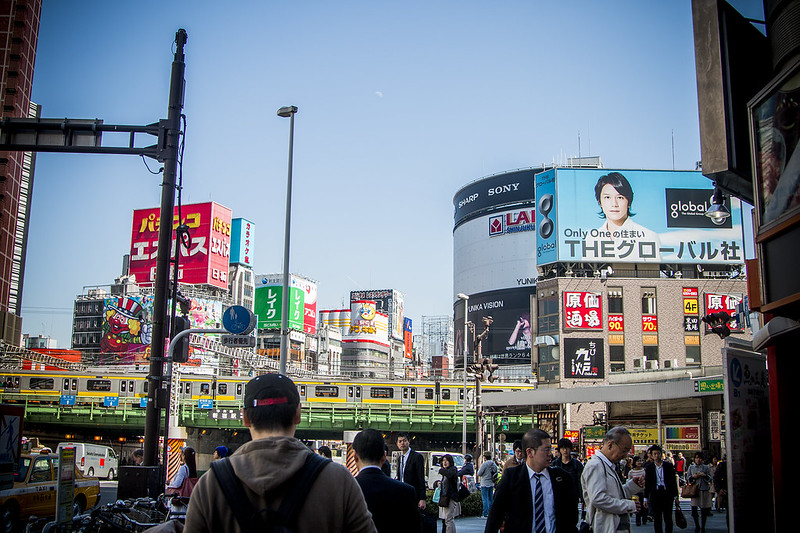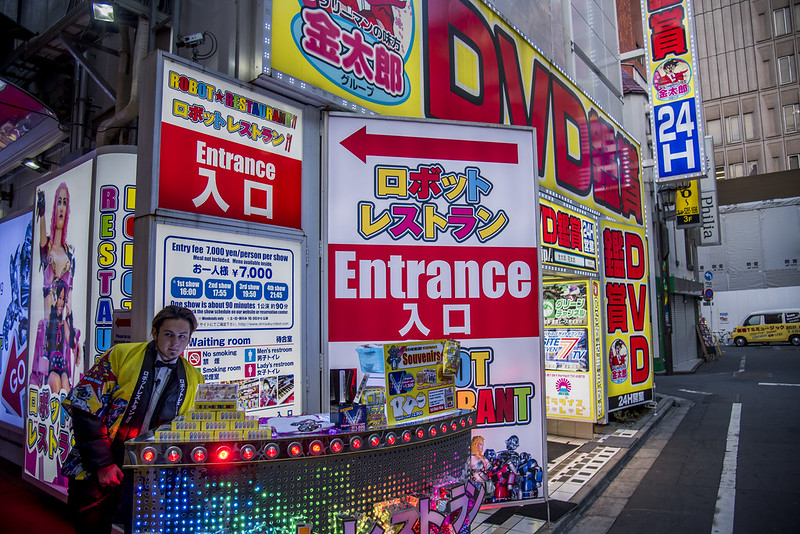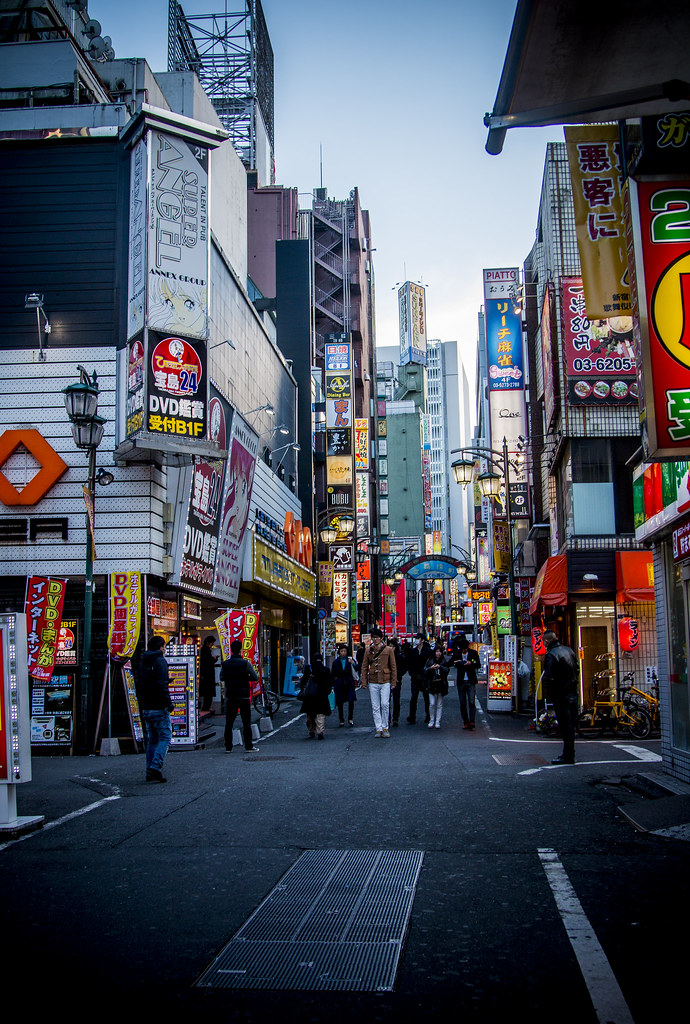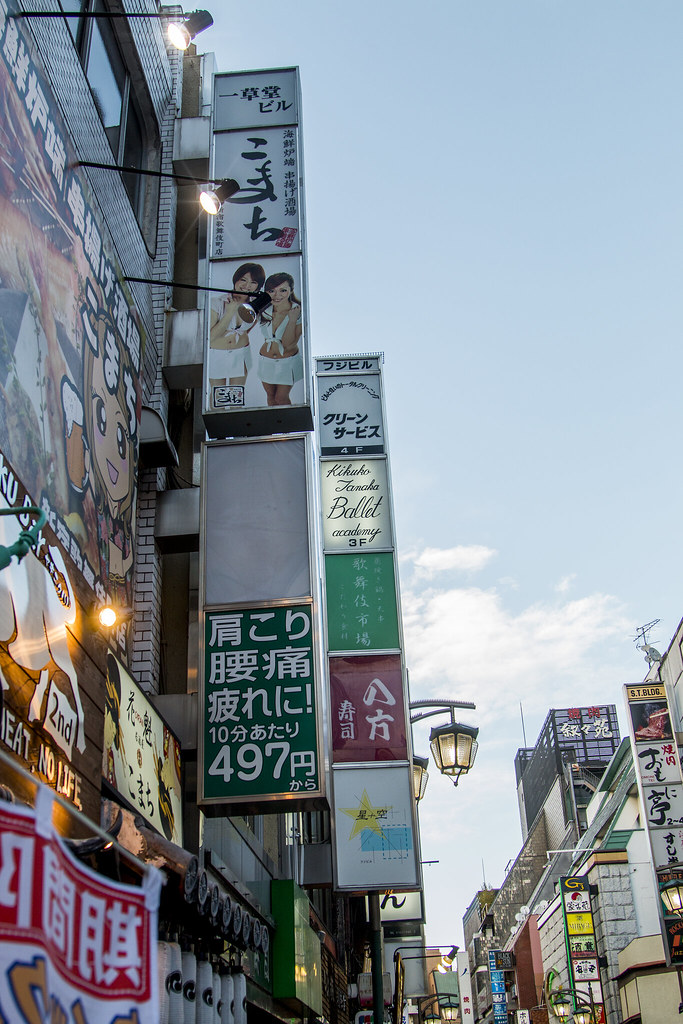
I’m often asked quite a bit of whether or not the Shinjuku is safe?
One may hear comparisons between Shinjuku and America’s “Sin City”, Las Vegas. But the two are very different but have some similarities.
For the most part, Tokyo is safe day and night. But parts of Shinjuku, you may need to be careful and let me explain why.
Shinjuku is one of the 23 special wards in Tokyo.
Back in 1634 during the Edo period, Edo Castle was built and many shrines and temples were moved to the Yotsuya area on the edge of Shinjuku.
By 1698, Naito-Shinjuku developed a station on Koshu Kaido, one of the major highways developed at the time.
One of the popular daimyo (feudal lords) families in the area was the Naito family who utilized confiscated land and transform the area to a pit-stop developed with inn’s, bars, restaurants and brothels knowing people will want or need this while going through the kaido. The area became known as Naito Shinjuku.
So, the area had a reputation since then.
In 1923, as the area was devastated by the Great Kanto Earthquake and the Tokyo air raids of during World War II demolished many of the pre-war buildings, the roads and rails still remained and the area went through reconstruction.
And what we see today is what were the seeds of Shinjuku’s past.
An entertainment district was created and what is known as Kabukicho would become an entertainment and red-light district of Shinjuku is where one can find over 3,000 host and hostess clubs, love hotels, shops, restaurants and nightclubs.
Because of this, Shinjuku has received the nickname “Sleepless Town”.
But because of the area it would become home for over a thousand yakuza gang members and many locations are under their control.
While closed-circuit cameras have been installed and police are clamping down illegal clubs and brothels since 2004, one should still be careful in the area at night.
Because of the many places to visit around the red-light district, the location brings in a lot of tourism during the day and night. Many tourists go to the area to visit the popular Robot Restaurant.
Many people tend to visit the area late at night to the wee hours of the early morning for the bars, especially Golden Gai.


But the biggest crime that has spiked around the area are drink-spiking and exorbitant bar tabs.
According to the US Embassy:
In most drink-spiking reports, the victim unknowingly drinks a beverage that has been mixed with a drug, rendering the victim unconscious or dazed for several hours, during which time the victim’s credit card is stolen or used for large purchases. Some victims regain consciousness in the bar or club; other victims may awaken on the street or in other unknown locations.
U.S. citizens have also reported being charged exorbitant bar tabs in some bars and clubs in Roppongi, Kabuki-cho, and other entertainment and nightlife districts. Although firearms and brandishing knives in public are illegal in Japan, U.S. citizens have reported being threatened with gun or knife violence in such venues to pay bar tabs or withdraw money. U.S. citizens have also reported being beaten when they have refused to pay or hand over money.




The US Embassy recommends the following:
Complaints of robberies committed after a victim has been drugged from a spiked drink are increasing. Some of Tokyo’s entertainment and nightlife districts – in particular, the Roppongi and Kabuki-cho areas – are considered high-risk areas for crime, and the Embassy receives reports of drink spiking, credit card fraud, extortion, and even assault in these districts. Use caution in all entertainment and nightlife districts throughout Japan.
Every year hundreds of thousands of tourists have safe and enjoyable visits to Tokyo. To help make sure you are one of them, follow these simple tips:
- If you are going out to enjoy Tokyo’s bars or nightclubs, consider leaving your credit and debit cards in the hotel safe! Take cash, and only as much cash as you are willing to spend.
- Don’t go clubbing alone! Take a friend, and stay together.
- Never enter a bar or club that employs a street hawker to draw in customers! Some establishments, especially in high-risk entertainment areas that cater to foreign clientele, put touts on the street to drum up business. These touts can be very aggressive, and many incidents reported to the Embassy take place in establishments that use them. If you meet one, it’s best to move on.
- Don’t accept an invitation for a free drink! In many incidents reported to the Embassy, touts have used offers of free drinks as an enticement.
- Keep an eye on your drink! Drink spiking at bars and entertainment venues, especially in areas such as Roppongi and Kabuki-cho, near Shinjuku, has led to credit card fraud, robbery and even physical and sexual assaults.
- Know when to say when! Criminals single out intoxicated persons as easy victims.
- Obey the law! Remember that possession or use of illegal drugs, including marijuana, are serious crimes in Japan. Convictions for drug offenses result in lengthy sentences.
- Know before you go! Be sure to read the Department of State’s Country Specific Information sheet for Japan for more information on safety and security.
If you believe you have been a victim of a crime, contact the police right away. In cases of credit card fraud you must file a police report at the nearest police station before you leave Japan. The Japanese police do not provide you a copy of the police report, but they issue a report number. You can provide this report number to your credit card company in order to confirm the incident with the police. The Japanese police cannot accept reports filed from overseas.
